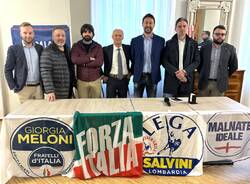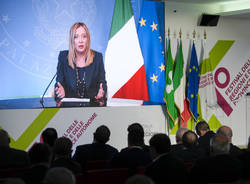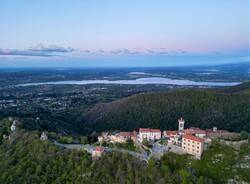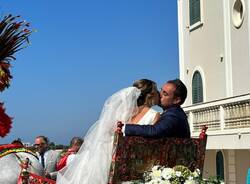The ever-increasing cost of holidays in Italy: but there is a solution
In the last few years, the tourism market has changed in a way that could not have been predicted.

The changing tourism market
In the last few years, the tourism market has changed in a way that could not have been predicted. Those operating in this sector are careful, but this phenomenon is not an isolated event; it is, in fact, a situation that is linked to a large number of factors. Elements of different origin act on the evolution of transactions related to the tourism sector, but also on social and cultural attitudes towards the world of tourism.
How has the business changed and what are the reasons for this change? Certainly, those who work in the tourism sector must take note that, in recent years, Italians have seen the prices of their holiday opportunities rise without seeing an equal increase in the services offered; indeed, in some cases, the services have even decreased.
This approach on the part of the operators has scared consumer demand, almost to the extent of denying the economic crisis that many have suffered. Consequently, the Italians who do not want to forego their holidays, have changed the manner in which they enjoy them.
In this situation, Italians are staying in Italy, thereby saving on air travel. Sometimes, however, this is not enough, and that is why they choose less popular tourist destinations instead of those with the nightlife: they prefer lesser-known locations, with fewer services, located perhaps a few kilometres away from the more famous tourist destinations.
Fortunately, in Italy, at the sea and in the mountains, it is possible to enjoy holidays for less money, by staying in less famous, but still pleasant places, not far from the upmarket resorts.
Also the type of accommodation you choose can have a significant impact on the overall cost of a holiday. On the Romagna coast, for example, an apartment is a fairly economical solution, especially for a whole family, or at least more than two people.
If you decide to spend your holiday inland, in our beautiful regions, away from the sea and mountains, you should decide between accommodation options that provide full or half board, such as farmhouses, and bed & breakfast facilities.
The former are more expensive, but they allows you to enjoy the delights of a gastronomic holiday, which is ideal if you want to discover the Italian inland. The bed and breakfast option is cheaper, but you should bear in mind that every meal is an extra, undefined expense.
These are just some ways and suggestions to save money on your holidays in Italy.
As far as foreign tourism is concerned, data from the Italian Central Institute of Statistics is comforting: about 20 million visitors came from abroad to stay in our tourist facilities, and over 50 million foreign travellers passed through Italy.
However, these numbers do not correspond to a sufficient economic recovery, as if something were not working. Is there a different solution? We need a solution that saves us money, that involves the traveller but that requires, above all, the will and commitment of the operators in the sector.
Innovation and investments in tourism
The way to make sure that the tourism business can reorganise itself, taking the social impulses and transforming them into economic wellbeing, does exist. Innovation and investments are the two elements we need in order to pursue this goal.
In addition to acknowledging we need innovation in the market and in the pricing policy, it is essential that resources from the tourism sector should not be wasted, but reinvested in the same sector.
Fair prices, conservation of cultural assets, ideas and organisation in the management of cultural heritage are needed to change the role of tourism in Italy. The benefits will be evident and, once shared, will contribute to fuelling a market that will be crucial to our economy.
Antonio Fusaro of villaggiestivi.com also put this clearly. “Regarding the high cost of holidays in Italy, compared to the relaunching of other countries such as Greece, Egypt and Albania, we must acknowledge that holidays in our country cost more today. As a result, also because of the economic crisis, families look for other destinations.”
The right approach is to continue to focus on Italian beauty, thanks also to the many tourist villages in the country. The proposal of this tour operator, already since 2010, has been to lower prices in Sardinia, and for Sicily, to provide free travel by ship from Civitavecchia, Livorno and Genoa. Indeed, Sardinia is paying more attention to how its tourists are welcomed.
Although, until now, its tourism has concentrated on upmarket and coastal destinations, there are an increasing number of inland experience holidays and gastronomic holidays on offer, provided by tour operators who are particularly attentive to the island’s culture. Of course, there are always offers that focus on the beautiful Sardinian sea, but in addition to the “beach only” holiday, there are boat trips, water sports and group diving. In the next few years, Sardinian tourism will tend increasingly towards this, attracting new types of younger tourists. The numerous villages in Sardinia with free ferries, will allow anyone to have these experiences, and the accommodation + free ferry trip offers will be able to attract the many tourists (especially Italians) who have always considered Sardinia too expensive.
Fusaro continued, “From this situation, we can get important insights; we need rules, in this sector, which, over the years, has become unbridled chaos. This might be a good opportunity to reverse the trend. We should be more aware of the country’s potential and concentrate on services; the genuinely high quality offer is not affected by the crisis. Our country has a fantastic history and sea, tourist villages scattered throughout the country; we have everything we need to change course.”
The new face of tourism
The data suggests that, today, Italian travellers do not plan: they decide at the last minute because they expect to get a discount. The cost of the holiday affects a tourist’s plans, much more than it did a few years ago.
In this situation, the role of the Internet has changed how choices are made and the type of destinations that Italian tourists can have access to.
This is now the start of Tourism 2.0, that is, the possibility of, and the access to information, opinions and shared experiences on the Internet and on the social networks. And this is how tourism presents a new face, freeing itself from its features related to the economic sector, almost making the role of large groups that manage the holiday industry disappear.
How does Italy exploit and channel this new social energy in tourism? We need to find the right way to enjoy this cultural growth in the tourism sector: Tourism 2.0 will not exist by rules imposed by the industry, but by sharing experiences. If this concept were extended to involve the beauty of our country and our heritage, the resulting economic return would be immense.
We must remember that almost half of the foreign tourists who decide to spend their holidays in Italy do so because they are interested in our artistic and cultural heritage; if we invested more in looking after our monuments and all of the treasures that distinguish us, the impact on the economy would certainly be positive.
TAG ARTICOLO
La community di VareseNews
Loro ne fanno già parte
Ultimi commenti
lenny54 su I no vax sono tornati a colpire in provincia: imbrattati i muri della redazione di Varesenews
malauros su I no vax sono tornati a colpire in provincia: imbrattati i muri della redazione di Varesenews
Felice su I no vax sono tornati a colpire in provincia: imbrattati i muri della redazione di Varesenews
PaoloFilterfree su A Varese Salvini prova a ricucire passato e futuro della Lega, ma Bossi non c'è
axelzzz85 su A Varese Salvini prova a ricucire passato e futuro della Lega, ma Bossi non c'è
elenera su A Varese Salvini prova a ricucire passato e futuro della Lega, ma Bossi non c'è














Accedi o registrati per commentare questo articolo.
L'email è richiesta ma non verrà mostrata ai visitatori. Il contenuto di questo commento esprime il pensiero dell'autore e non rappresenta la linea editoriale di VareseNews.it, che rimane autonoma e indipendente. I messaggi inclusi nei commenti non sono testi giornalistici, ma post inviati dai singoli lettori che possono essere automaticamente pubblicati senza filtro preventivo. I commenti che includano uno o più link a siti esterni verranno rimossi in automatico dal sistema.